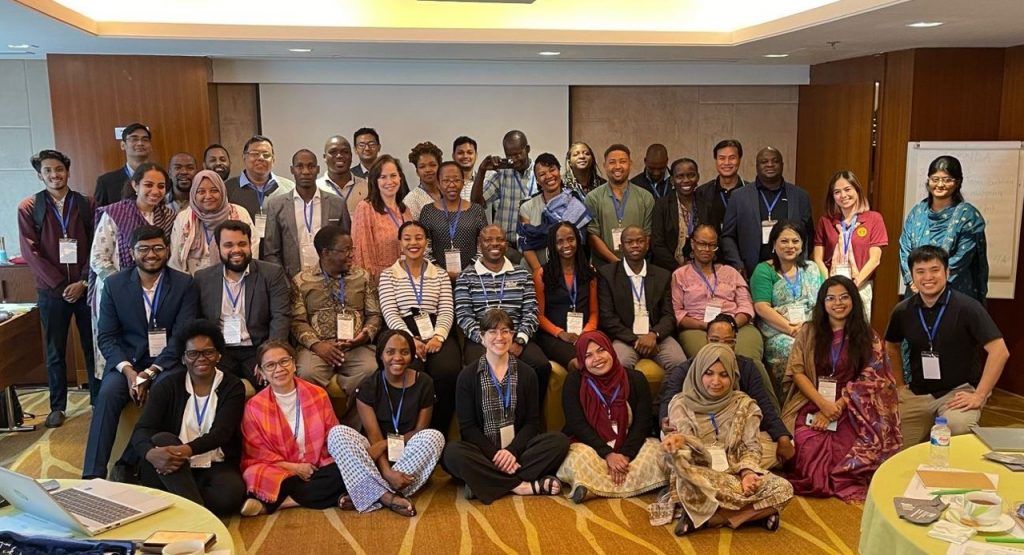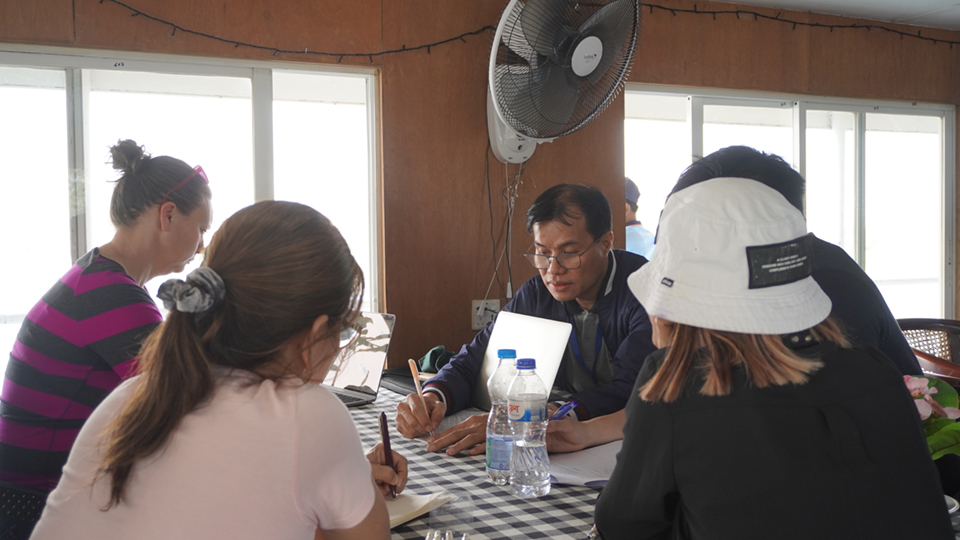
From February 5 to 10, 2024, the Center for Climate and health on glObal Research on Disasters (CORD) consortium held a Planning Retreat in Dhaka, Bangladesh to mark the initiation of CORD endeavors. This also served as a culmination for the projects within the global consortium of the Academic Alliance for Anticipatory Action (4As). The Research and Creative Work Division’s (RCW) Director Dr. Glecy Atienza and Chief Science Research Specialist Dennis de la Torre have represented the UP Resilience Institute (UP RI), together with the 4As Work Package 1 Coordinator Asst. Prof. Lianne Angelico Depante, and the 4As Work Package 2A Coordinator Janice Carpo-Aldea.
On the first day of the retreat, Depante, Aldea, and de la Torre presented the research outputs of Work Packages 1, 2A, and 2B, respectively. Drawing from their project results, Depante highlighted that regardless of receiving anticipatory action assistance, the majority of the respondents still resorted to home remedies as interventions to water-borne diseases. Research-wise, he stressed the importance of community-engaged research methodologies to have a more proactive approach in succeeding research works in the consortium. After the Work Package 1 report, Aldea presented the development of an impact-based flood forecasting system under Work Package 2A. The system, dubbed as “now-casting,” has been successfully deployed into the NOAH website, along with the intricate documentation of the code and application manual.
Lastly, Mr. de la Torre of Work Package 2B shared that the international development partners have greater anticipatory action practices than the local government units, stating that the policy restrictions are the primary reason behind it. Relating things to the Work Package 2A, de la Torre found out in their research work that their partner community needs capacity building and decision support tools such as the Work Package 2A output. In summary, de la Torre would like to venture further into digitalization for a better implementation of anticipatory action. He would also like to draw from the lessons and findings of 4As, and the incoming CORD research project, to transform them into advocacy plans and policies.
The following day, Asst. Prof. Depante has led the discussions on the importance of Open and Distance e-Learning (ODeL) in meeting the learning needs of marginalized and underserved communities. He shared his insights on how this modality helped UP Open University bring quality education to Filipinos despite the geographical and logistical constraints. Meanwhile, Mr. de la Torre presented the Pathways to Impact, a research design drawn from the Theory of Change. The Pathways to Impact describes how the insights from a project activity relate to short-term and long-term changes, thus, bringing a potential behavioral change.

Throughout the four-day retreat, the consortium members have formed multiple discussion groups to consolidate their plans for the CORD project. This includes the consortium-level data collection and management plan, the aims and expected outputs per specific core, and the research design and methodologies to be employed in their projects, among others. Within the three-year CORD project, UP RI will be focusing its research works on the prevention and control of dengue as a prevailing climate-induced disease during the peaks of dry and rainy seasons. This will be spearheaded by the Research and Creative Work Division (RCW) whose commitment to delivering proactive solutions for protecting health and building resilience has been steadfast with the vision of the consortium.
